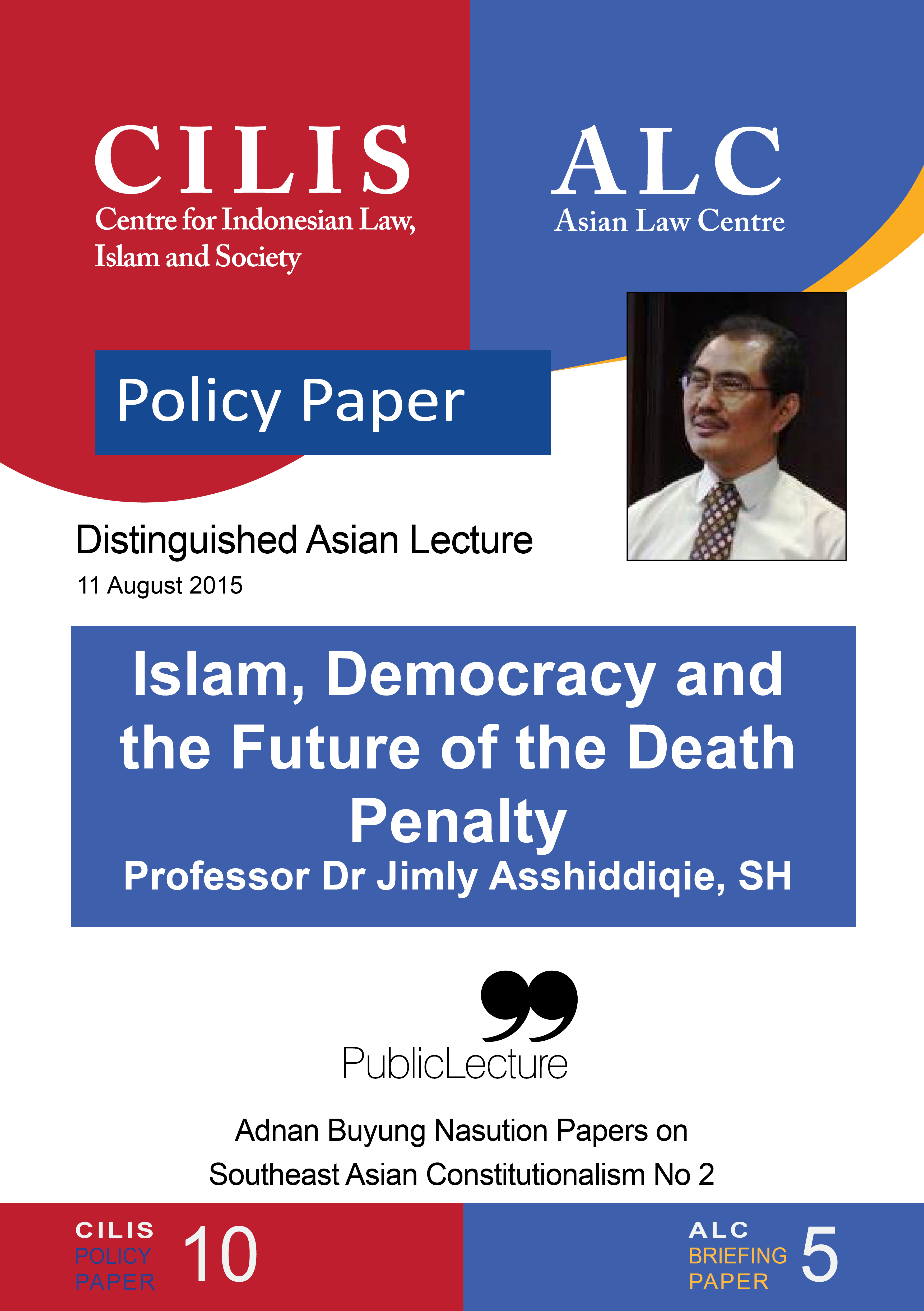No 5 (2015) by Professor Dr Jimly Asshiddiqie, SH

This paper explores Islamic attitudes to the death penalty and argues that all contemporary cultures – whatever their origin and whatever their religious context – face challenges in reconciling the death penalty with the right to life. The experiences of the United States (the world’s largest Christian society), India (the largest Hindu society), and Indonesia (the largest Muslim society) suggest, however, that religion is not always an obstacle to democracy or human rights reform, even if all these countries still execute. The paper raises the questions of whether Islam requires the death penalty for certain crimes; whether executions are a breach of human rights; and whether religion is an obstacle to human rights reform. The paper concludes that increasing acceptance of democracy and international human rights norms as a global civilisational aspiration is forcing reconsideration of the death penalty in many societies - including in Muslim majority states like Indonesia.
Professor Jimly Asshiddiqie is a leading Indonesian legal figure, both as a scholar and a prominent public official. As founding Chief Justice of Indonesia’s first Constitutional Court (2003-2008) he established a new branch of the judiciary and developed a process of constitutional review of statutes that had long been missing in Indonesia. He helped set a new standard in Indonesian courts for reasoned judgments drawing on international jurisprudence, as well as pioneering publication of judgments. He also led the Constitutional Court when it decided a challenge to the death penalty in 2007. He is now chair of the Honorary Council of the Electoral Management Bodies and of the Advisory Council to the National Commission of Human Rights. He has advised presidents and the national legislature on legal and political issues, and has twice been decorated for his contributions to Indonesian law reform and state administration. Professor Asshiddiqie studied at the University of Indonesia, Leiden University and Harvard, and is Professor of Constitutional Law at the University of Indonesia. He has published more than 40 books, some in English, creating an important resource for emerging constitutional thought on democracy in Indonesia.